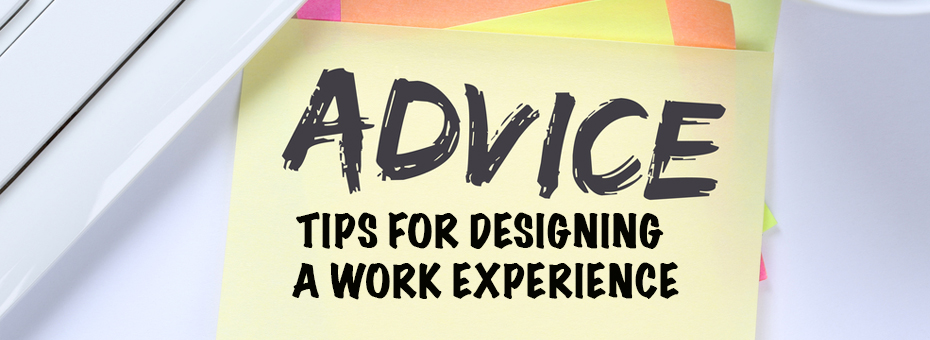When designing a work experience, the benefits of having an experienced coach to guide you cannot be overstated. A step so critical and fundamental to an effective work environment calls for an experienced set of eyes to make recommendations and offer up advice as you navigate this complex tasks. In this installment of Advice from the Gemba, three of the Lean Global Network’s most experienced coaches offer their favorite tips for designing a work experience:
Alice Lee (Executive Director, Strategy and Administration, Lean Enterprise Institute)
 The way I suggest you approach any improvement is to start by understanding the work as it currently operates, whether it’s the people involved, the equipment, the process, the materials, or the space; all of the elements that contribute to the work experience. The best way to do that is to go and see – to observe the work being done, at multiple times. You want to see the work on different days, times, etc. and consider how that changes anything. That’s the best way to begin to understand the work.
The way I suggest you approach any improvement is to start by understanding the work as it currently operates, whether it’s the people involved, the equipment, the process, the materials, or the space; all of the elements that contribute to the work experience. The best way to do that is to go and see – to observe the work being done, at multiple times. You want to see the work on different days, times, etc. and consider how that changes anything. That’s the best way to begin to understand the work.
Oftentimes I see people skip the step of observing the work at the gemba. They have the mindset of, “What’s the point of observing the work when I already work at the gemba? I am the gemba!” I’ve never seen that thinking turn out well.
Getting the team to actually stop and observe the work in the context of the whole system gives them insights they may not get by simply operating in part of the system. In all the initiatives I’ve been part of, the work experience always has a customer, and as we know, the customer comes first. When the customer is not having a good experience, you can look upstream to the work and say, “Okay, what is going on with the way the work is currently designed, or not designed, that is creating problems for our customers?” But you can only make lasting changes if you’ve immersed yourself in the work and understand it from all perspectives. Designing a good work experience creates a better customer experience.
Flavio Battaglia (Project Manager, Lean Institute Brasil)
 If you are not the person who does the job on daily basis, and you are, somehow, in charge of designing someone else’s work experience, my best tip for you would be to do the work yourself. At least for a while; even if just some simulation is possible. Try the new possible work configurations with your own body. Blueprinting basic difficulties workers will face while doing their job is a good way to avoid fundamental mistakes. Issues related to safety, ergonomics, and quality control, for example, become evident once you experience the work by yourself.
If you are not the person who does the job on daily basis, and you are, somehow, in charge of designing someone else’s work experience, my best tip for you would be to do the work yourself. At least for a while; even if just some simulation is possible. Try the new possible work configurations with your own body. Blueprinting basic difficulties workers will face while doing their job is a good way to avoid fundamental mistakes. Issues related to safety, ergonomics, and quality control, for example, become evident once you experience the work by yourself.
About a month ago, during a strategy deployment meeting at a big private hospital in Brazil, a very bad decision was about to be taken. Senior leaders were deciding to abandon a critical initiative: remodeling central pharmacy’s storage shelves. They were about to postpone some minor – but very important – changes, because bolder investment would be dedicated to the pharmacy during fiscal year of 2018, according to budget plans. So I invited two of the senior managers to spend the morning at the central pharmacy, first, just to observe the work. While we were there, I convinced both of them to try to pick drugs and materials for half an hour. After struggling to do this, they not only decided to immediately implement the proposed minor changes, but also helped the pharmacy’s manager to address several other issues of which they were not aware.
Oriol Cuatrecasas (Director, Instituto Lean Management)
 My experience is that one of the most important points when designing a work experience is that those who are working on the analysis – and even those who might not be directly working on it but would be affected by the changes – should observe, by themselves, how the process actually works. There is no better way to understand the problems. Solving problems is not just about participating in solutions, but also feeling the gaps.
My experience is that one of the most important points when designing a work experience is that those who are working on the analysis – and even those who might not be directly working on it but would be affected by the changes – should observe, by themselves, how the process actually works. There is no better way to understand the problems. Solving problems is not just about participating in solutions, but also feeling the gaps.
However, putting this into practice is not simple at all. It requires a lot of energy, and what happens most of the time is:
- People do not know how to observe.
- In this case it’s important to conduct the whole practice of observation. Defining simple instructions and goals for the gemba walk.
- People are not able to stay observing.
- We’re not educated to be “idle,” just standing there and looking while problems happen around us. Perhaps this is why Ohno draw a circle in the floor to keep observers there – we are often tempted to jump in and “help” our colleagues and doing others’ work instead of remaining in the Ohno circle. This is (probably) why it’s easier to observe someone else’s role than your own – because, among other reasons, it will be more difficult to detect opportunities for improvement in your own work, as you will be used to it and find everything ‘normal!’
But there is good news: with just a few methodologies and tools, you can to develop these abilities and culture. You’ll need to in order to design a work experience.
Only a few months ago I saw a need for this while we were observing at a bakery shop. The staff started a project in a pilot bakeshop, and they invited me to a gemba visit to observe and understand their problems. On the lean team there was three women who were area managers for a number of shops.
We were invited to meet on Sunday, as it was the “worst” day for operations. When we arrived, the women asked me if I wanted something to eat. I asked for a croissant (a well-recognized specialty). But the manager that offered to bring the croissant entered the storehouse and…we lost her! She never came back. A second manager offered to investigate and bring back a croissant. Disappeared. Finally the top manager offered to investigate herself … and return with a croissant. Never returned.
So I was left alone. Finally, I decided to get in the customer line and wait my turn, as a regular client…to BUY a croissant. When it was my turn one of the managers – acting as the cashier – raised her head to tend to the next client and saw me there, waiting in the cue…we started laughing! She asked me, “I am not doing a good job, right?” (Read: “ I am not following the right approach, right?”)
All of the managers had been absorbed by a “work infinite spiral.” Even while trying to sit and observe, every time a problem occurred we “lost” one of them, trying to put things back on track (as usual). In the end, I was the only one remaining quiet and observing – and, maybe, really seeing the problems. I decided to videorecord them for a few minutes with my cell phone, to share with them what really was happening in the shop around us while they were trying to solve their problems in the same place. They – and anyone else in this situation – just need some tips to understand how to focus on their work experience.





